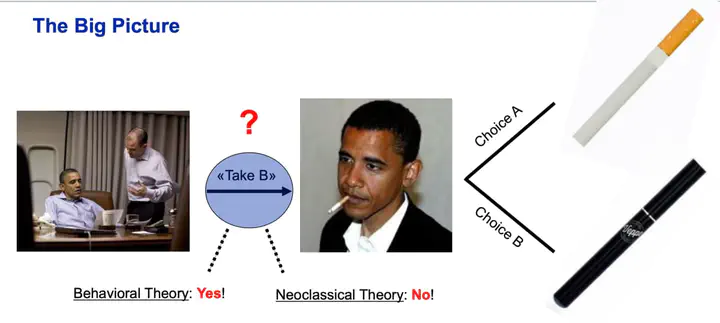A Critical Evaluation of a Behavioral Paper

In the field of media and communication, attention is often drawn to the special role of magazines, television or - more recently - online channels, such as the internet or social media, to disseminate information to a population / across a network. On this basis, I analyzed how important the source of an information (the „messenger“) can be when people formulate a decision - here in the context of choosing to consume normal tobacco cigarettes VS. electronic cigarettes. More specifically, the goal was to present and explain a study’s empirical findings during a 30 minutes presentation.
In the (empirical) study I analyzed, the test subjects - in this case smokers - were given the exact same information, namely: „E-cigarettes are significantly less dangerous than tobacco cigarettes: If you switch to e-cigarettes today, you are likely to live 5 years longer“, but the source of the information - i.e., „the messenger“ - varied, i.e., certain smokers received the message from:
- a fictitious e-cigarette company, others from
- a health organization, others again from
- physicians, or
- from a „neutral source“ (e.g. „no messenger“).
As you can guess from the above list of „messengers“, some of these sources seem more trustworthy than others. This is exactly the hypothesis the researchers wanted to test, namely whether the exact same information would have different marginal effects on smokers’ beliefs and their consumption decisions („buy e-cigarette VS. buy tobacco cigarettes“).
As a student, it was then my task to present this data analysis in an understandable way and to analyze the reliability of the research method used (are the final results of the study credible?).
DOWNLOAD MY PRESENTATION